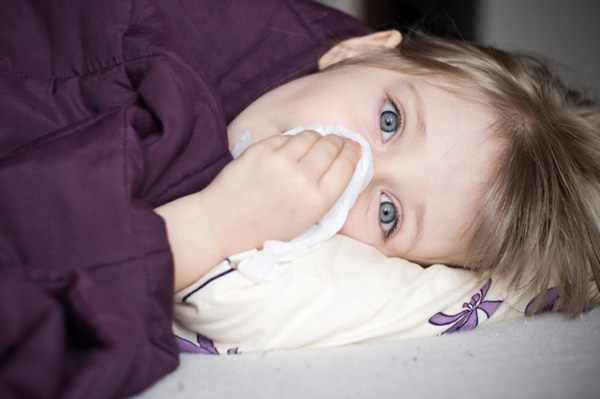
The viral form of meningitis is more common and is sometimes referred to as "aseptic meningitis." Viral meningitis is caused by a number of different viral infections including mumps, herpes, Epstein-Barr, varicella zoster (the virus that causes chickenpox), measles and influenza.
DiagnosisDoctors diagnose viral meningitis by collecting spinal fluid through a spinal tap and having it analyzed in a lab. If no bacteria are detected in the fluid but the patient is exhibiting the signs and symptoms of meningitis, the patient is thought to have viral meningitis. The Centers for Disease Control and Prevention says that symptoms for viral meningitis either appear quickly or manifest over several days -- usually following a cold, runny nose, diarrhea, vomiting or other signs of infection. Illness from viral meningitis generally lasts seven to 10 days, and the patient typically sees a full recovery.
PreventionViral meningitis is contagious, so good hygiene is the best way to avoid being infected. Some vaccines, such as MMR and varicella-zoster, can protect children from the diseases that can lead to viral meningitis, so it's important to keep children up to date with the recommended childhood vaccination schedule.
Meningitis in children >>
Bacterial meningitisBacterial meningitis is the result of a bacterial infection that attacks the body rapidly. Patients who contract bacterial meningitis exhibit the same flu-like signs and symptoms as the viral form of the disease, but their symptoms worsen within hours rather than days.
DiagnosisAs with viral meningitis, this form can be diagnosed only by collecting spinal fluid with a spinal tap. If the bacterium that causes the infection is detected, it can be treated with intense antibiotics that can reduce the risk of death. Lack of treatment or complications from bacterial meningitis include hearing loss, blindness, loss of speech and memory, brain damage, paralysis, kidney and adrenal gland failure, shock and death.
PreventionSome forms of bacterial meningitis are contagious and usually spread through respiratory and throat secretions (oral contact and exposure to coughing or sneezing). Effective and safe vaccines, such as that for Hib, can protect individuals from some of the bacteria that cause bacterial meningitis.
If you or someone you know is experiencing any of these symptoms, get to an emergency room right away. Fast action saves lives.
More on meningitisWhat is meningitis?
The symptoms of meningitis
Teens & meningitis
没有评论:
发表评论